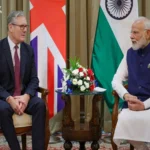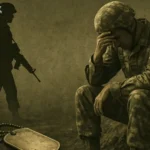UN Expert Investigates Claims of Rohingya Refugees Forced Off Indian Navy Ship
Key Developments:
-
Allegations of Forced Expulsion at Sea:
-
UN Special Rapporteur Tom Andrews is investigating “credible reports” that Rohingya refugees were forcibly removed from an Indian Navy vessel and abandoned in the Andaman Sea.
-
Andrews called the alleged act “outrageous” and demanded India provide a full explanation.
-
-
UN’s Strong Condemnation:
-
The UN expert expressed “deep concern” over what appears to be India’s “blatant disregard” for the safety of refugees.
-
He emphasized that Rohingya refugees are entitled to international protection under human rights laws.
-
-
Context of Rohingya Persecution:
-
The Rohingya, a Muslim minority from Myanmar, have faced decades of state-backed persecution.
-
Over 1 million live in camps in Bangladesh after fleeing a brutal 2017 military crackdown.
-
Thousands risk dangerous sea journeys annually to seek asylum in countries like India, Malaysia, and Indonesia.
-
-
Recent Crackdown in India:
-
Reports indicate Indian authorities detained dozens of Rohingya in Delhi last week—many holding official refugee documents.
-
India does not recognize Rohingya as refugees, labeling them “illegal immigrants” and deporting some back to Myanmar.
-
India’s Stance & International Response:
-
India has not yet responded to the UN’s allegations.
-
Previous government statements describe Rohingya as a “security threat”, citing potential terror links.
-
Human rights groups have criticized India’s deportations, arguing it violates the principle of non-refoulement (no forced return to persecution).
If confirmed, the alleged forced expulsion of Rohingya refugees at sea would mark a severe violation of international human rights law. The incident adds to growing scrutiny of India’s harsh treatment of Rohingya, contrasting with its historical role as a haven for refugees. The UN’s investigation could escalate diplomatic pressure on New Delhi, raising questions about India’s adherence to global refugee protections. Meanwhile, the Rohingya remain trapped in a cycle of displacement and danger, with no safe haven in sight.






